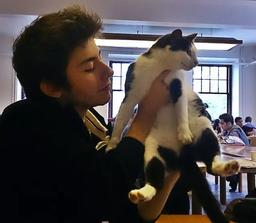The following nouns expressing locations are often used with a possessive suffix to indicate location.
Note that while üzeri can mean its top, there is no word üzer meaning top in Turkish. Both üzerinde and üstünde can be used to say on top of.
| - | - |
| its top | üzeri |
| at its top / on top of it | üzerinde |
| There is an insect on top of your head. | Kafanın üzerinde bir böcek var. |
| middle | orta |
| its middle | ortası |
| at its middle / in the middle of it | ortasında |
| Kayseri is a city in the middle of Turkey. | Kayseri Türkiye'nin ortasında bir şehir. |
| outside | dış |
| its outside | dışı |
| at its outside / outside (of it) | dışında |
| I am living outside of Turkey. | Türkiye'nin dışında oturuyorum. |
| inside | iç |
| its inside | içi |
|
| at its inside / inside (of it) | içinde |
| The cat is inside the box. | Kedi kutunun içinde. |
We will always translate inside (of) with içinde, and we will always translate in with the locative suffix DE.
However, in practice in can be translated both by içinde and by the locative suffix DE.
Sometimes you want to say inside or outside without mentioning an object.
In that case you can use the nouns içeri and dışarı respectively.
| inside | içeri |
| I am coming inside. | İçeriye geliyorum. |
|
| outside | dışarı |
| I am going outside. | Dışarıya gidiyorum. |
|
| The children are outside. | Çocuklar dışarıda. |
|
The words içeri and dışarı can also be used as adverbs, instead of saying içeriye and dışarıya, in which içeri and dışarı are used as nouns.
| I am coming inside. | İçeri geliyorum. |
|
| I am going outside. | Dışarı gidiyorum. |
|

